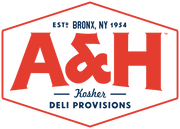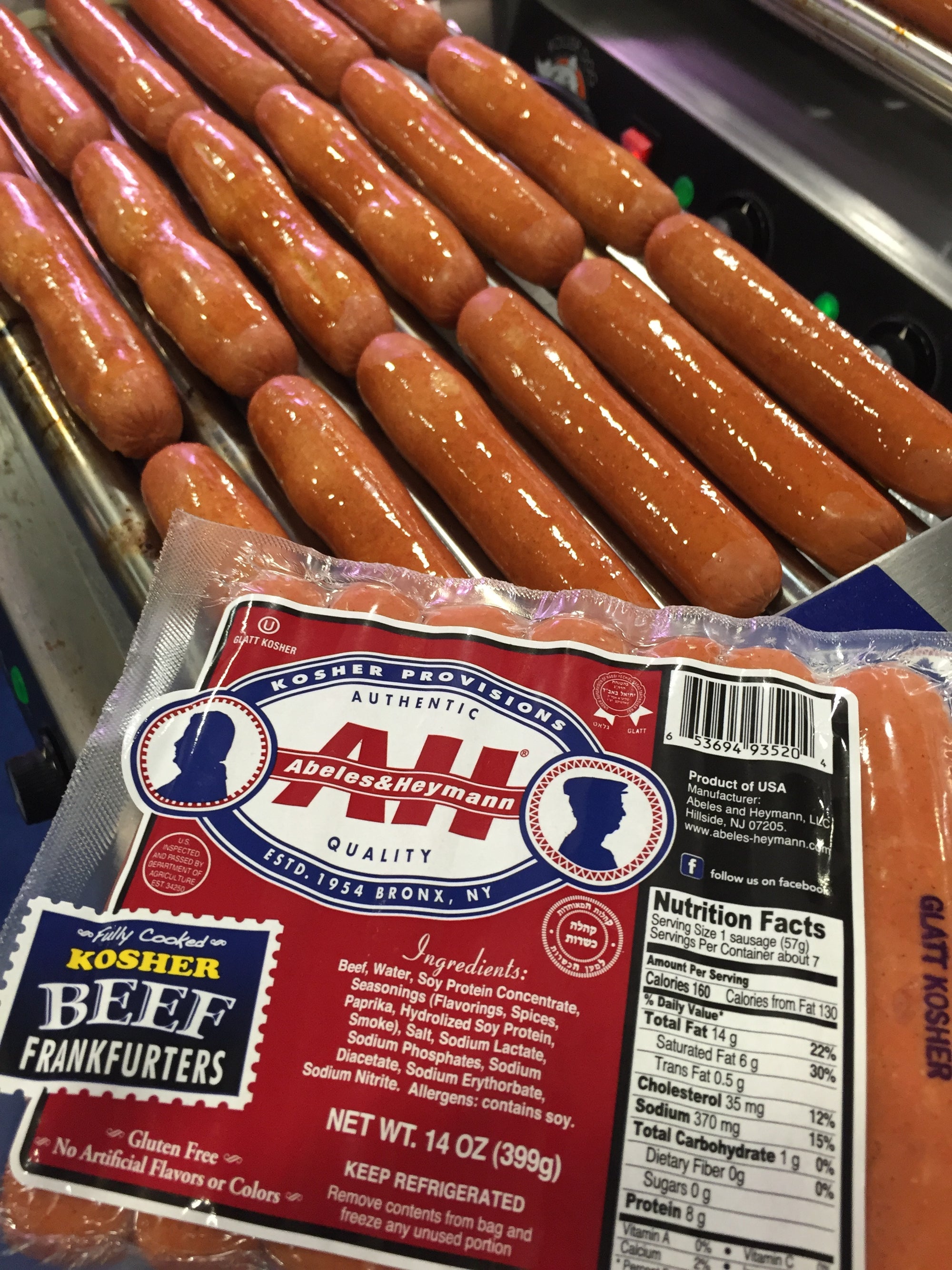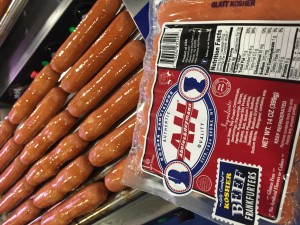Keeping it Kosher: Hot dog processing is a religious undertaking for Abeles & Heymann
While growing up in Austria, Oscar Abeles learned about meat and provisions through butcher apprenticeships. He even kept a book where recipes and notes showed the proper techniques for crafting hot dogs and salamis. After moving to the United States, Abeles founded Abeles & Heymann in 1954 with his nephew, Leopold Heymann. The company initially operated out of a little store in the Washington Heights neighborhood of New York City before moving to the Bronx.
In 1997, current CEO Seth Leavitt bought Abeles & Heymann. After that purchase, his vision for the business was sticking to an old-school mentality of making meat.
“They (the original owners) didn’t want a large corporation to come in and make changes right across the board and change the nature and quality of the product,” Leavitt says. “They wanted someone who had integrity or the product, and that’s what they found.”
In 2007, Leavitt realized to keep the traditional practices going, Abeles & Heymann needed a new and up-to-date facility to manage the demand and packaging for a 21st-century operation. So he moved the company to Hillsdale, New Jersey, where it operates today. Even with the changes of location to the Tri-state area, the kosher company relies on quality processing and ingredients to distinguish its products from other hot dog makers.
“We’re not in the fresh meat business,” Leavitt says. “We’re not looking to get in the fresh meat business. We’re just looking to make the hot dog, salami, corned beef or pastrami and just make it right. The way it should be. The way it was made 50 to 60 years ago.”
The Power of Glatt
One way Leavitt and his employees have maintained the integrity of the product is adhering to the strict glatt kosher standard of hot dogs. Glatt kosher differs from regular kosher in that the meat must come from an animal with adhesion-free or smooth lungs. Leavitt says his processing team in New Jersey takes great care to produce the best-possible product.
After creating the proper lean-to-fat combination for a given customer, the mixture is moved into a rotating paddle machine where the ground meat and fat create a bind that helps the hot dogs stay less greasy with fewer leaks. Then it’s into the emulsifier where spices are added to the process.
Next, hot dog emulsion goes into the stuffer where the meat is extruded into the linker. The linked hot dogs are placed on a hanging tree before being moved to the ovens where the meat is smoked for 12 to 24 hours. After cooling, the products are peeled, packaged and shipped to customers. Along with the traditional meats, Abeles & Heymann is always looking to other variations of hot dogs, whether reduced-fat or nitrate-free.
“The (customers) want to know what they are feeding their families,” he says. “Even though they still want a hot dog, they want a better-for-you hot dog.”
Abeles & Heymann hot dogs are sold in more than 20 states across the country with its main business in the Northeast.
Bringing in a partner
In the age of rapid technology and constant digital innovation, Leavitt likes producing a product that can be touched. Leavitt is also someone who enjoys making something for people to savor.
“You serve someone a hot dog, and you make them smile,” Leavitt says. “It’s a nice feeling. You give them a piece of software; you provide them with a piece of software. I’ve got something tangible that I’m doing here and that’s what drew me into the business. I wanted to do something tangible.”
To maintain his business and keep customers happy, Leavitt knew he needed a sustainable partner. In 2012, Abeles & Heymann formed a strategic agreement with Hod Golan, an Israeli food company specializing in ready-to-eat foods. This partnership provided steady backing for the company’s US operations while adding global expertise to the business.
“We are still a small company in America, but we’ve got all the expertise of a big company behind us,” Leavitt says.
Micha Rakaby, senior vice president of Hod Golan, says the merger served to expand his company’s reach in the US.
“We felt that partnering with A&H would allow us to expand our Israeli brand of RTE provisions and secure our distribution chain in the US,” Rakaby explains. “In A&H we found a company that shared our values, was strategically aligned with us. A&H had built its reputation on quality, loyalty from its consumers.”
The two executives met at a tradeshow in New Jersey in 2011. Rakaby approached Leavitt about the idea of having his company do some private label work for Hod Golan. Leavitt countered by saying the prospect of a private label was enticing, however he was more interested in seeking out a strategic partner to grow his business.
Within six months they had the paperwork completed and formed the new agreement. Rakaby says Leavitt is a valuable partner in the US market.
“Seth (Leavitt) is persistent, dedicated, hard working and knowledgeable, which is why we wanted to partner with him. He has provided us with insight into the kosher food market in the US,” Rakaby says. “With the limited number of resources at his disposal, he took what was a small niche brand sold regionally and in small numbers to a multimillion dollar company with national sales in the millions.”
Now with a well-positioned company, Leavitt sees nothing but opportunity in his niche area of hot dogs and kosher meats.
“The other guys I compete with are meat companies and the fact that they are meat companies they are always looking for a place to get rid of their excess meat and so they put it in their hot dogs,” he says. “We’re simply a hot dog company.”
But more than anything it’s about satisfying customers with a quality commodity and keeping the original Abeles & Heymann philosophy from the 1950s far into the future.
“There’s something about hot dogs and Americana and being kosher,” Leavitt says. “I was making something that I think is better than anything else in the world regarding food. I’m making a product that people love; that kids love. It’s something that tastes great and can be exceptionally horrible if done incorrectly.”
By Ryan McCarthy
rmccarthy@sosland.com
This article was originally published in the February 2017 issue of MEAT+POULTRY
“Abeles & Heymann has proudly been certified by the Orthodox Union for over four decades. The OU is the proven leader for Kosher standards in the food industry and we are honored that we have been able to prominently place their symbol and maintain the OU’s highest standards on our products for all these years.” – Seth Leavitt, Abeles & Heymann, LLC, Hillside, NJ 07205


